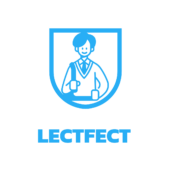Exploring the diverse array of learning strategies not only broadens your educational toolkit but also empowers you to tailor your learning experience to match your individual preferences and strengths. By delving into the various methods available, you can discover the strategies that resonate most with you, ultimately paving the way for a more efficient and enjoyable learning process. So, whether you’re a visual learner who thrives on diagrams and charts or an auditory learner who benefits from listening to lectures, understanding the types of strategies can revolutionize how you approach acquiring new knowledge.
Types Of Learning Strategies
Defining Learning Strategies
Learning strategies refer to the techniques and methods individuals use to acquire, understand, and retain new information effectively. These strategies are personalized approaches that cater to different learning preferences and styles. By implementing a variety of learning strategies, individuals can enhance their comprehension and knowledge retention across various subjects and tasks.
The Importance of Effective Learning Strategies
 Effective learning strategies play a pivotal role in academic success and professional development. By utilizing suitable learning strategies, individuals can optimize their study habits, improve their performance in exams, and enhance their overall learning experience. Understanding and applying effective learning strategies not only boost productivity but also foster a deeper understanding of the subject matter. It’s essential to identify and incorporate the most effective learning strategies based on individual strengths and preferences to maximize learning outcomes.
Effective learning strategies play a pivotal role in academic success and professional development. By utilizing suitable learning strategies, individuals can optimize their study habits, improve their performance in exams, and enhance their overall learning experience. Understanding and applying effective learning strategies not only boost productivity but also foster a deeper understanding of the subject matter. It’s essential to identify and incorporate the most effective learning strategies based on individual strengths and preferences to maximize learning outcomes.
Learning Strategies
Building on the foundation of personalized learning strategies, individuals can enhance their learning experience through various approaches tailored to their preferences and cognitive styles.
Cognitive Learning Strategies
Cognitive learning strategies involve mental processes that aid in understanding and retaining information. Techniques such as organizing content, making connections, and summarizing key points can boost memory retention and comprehension. By actively engaging with the material through activities like mind mapping or creating mnemonics, learners can strengthen their recall abilities and critical thinking skills.
Metacognitive Learning Strategies
 Metacognitive learning strategies focus on regulating one’s cognition to optimize learning. This includes setting goals, monitoring progress, and evaluating strategies’ effectiveness. Reflecting on learning experiences, identifying areas for improvement, and adjusting study techniques accordingly are key components of metacognitive strategies. By developing metacognitive awareness, learners can enhance their self-directed learning skills and adaptability to various academic challenges.
Metacognitive learning strategies focus on regulating one’s cognition to optimize learning. This includes setting goals, monitoring progress, and evaluating strategies’ effectiveness. Reflecting on learning experiences, identifying areas for improvement, and adjusting study techniques accordingly are key components of metacognitive strategies. By developing metacognitive awareness, learners can enhance their self-directed learning skills and adaptability to various academic challenges.
Social/Affective Learning Strategies
Social and affective learning strategies emphasize collaboration, communication, and emotional awareness in the learning process. Collaborative learning activities, peer discussions, and constructive feedback from peers can enhance understanding and deepen insights into complex topics. Cultivating a positive learning environment, managing stress effectively, and seeking support from mentors or peers can contribute to emotional well-being and overall academic success. Incorporating social and affective strategies into learning routines fosters a supportive community conducive to holistic growth and development.
Implementing Learning Strategies
Steps to Identify Personal Learning Needs
 To identify personal learning needs, individuals should self-assess their preferred learning styles and tendencies. They can do this by reflecting on past learning experiences and determining what methods were most effective for them. Utilizing tools like learning style inventories can also provide insights into one’s dominant learning style, whether it be visual, auditory, or kinesthetic. Understanding one’s learning preferences is crucial in tailoring learning strategies to maximize effectiveness.
To identify personal learning needs, individuals should self-assess their preferred learning styles and tendencies. They can do this by reflecting on past learning experiences and determining what methods were most effective for them. Utilizing tools like learning style inventories can also provide insights into one’s dominant learning style, whether it be visual, auditory, or kinesthetic. Understanding one’s learning preferences is crucial in tailoring learning strategies to maximize effectiveness.
Integrating Strategies into Everyday Learning
Integrating learning strategies into everyday activities is essential for reinforcing knowledge acquisition. Individuals can incorporate cognitive strategies like summarizing information, connecting new concepts to prior knowledge, and practicing retrieval techniques during regular study sessions. Metacognitive strategies such as setting goals, monitoring progress, and adjusting learning approaches accordingly can enhance learning outcomes. Social and affective strategies like discussing topics with peers, seeking feedback, and managing stress levels contribute to a well-rounded learning experience. By consciously applying these strategies in daily learning routines, individuals can cultivate a more efficient and productive learning environment.

